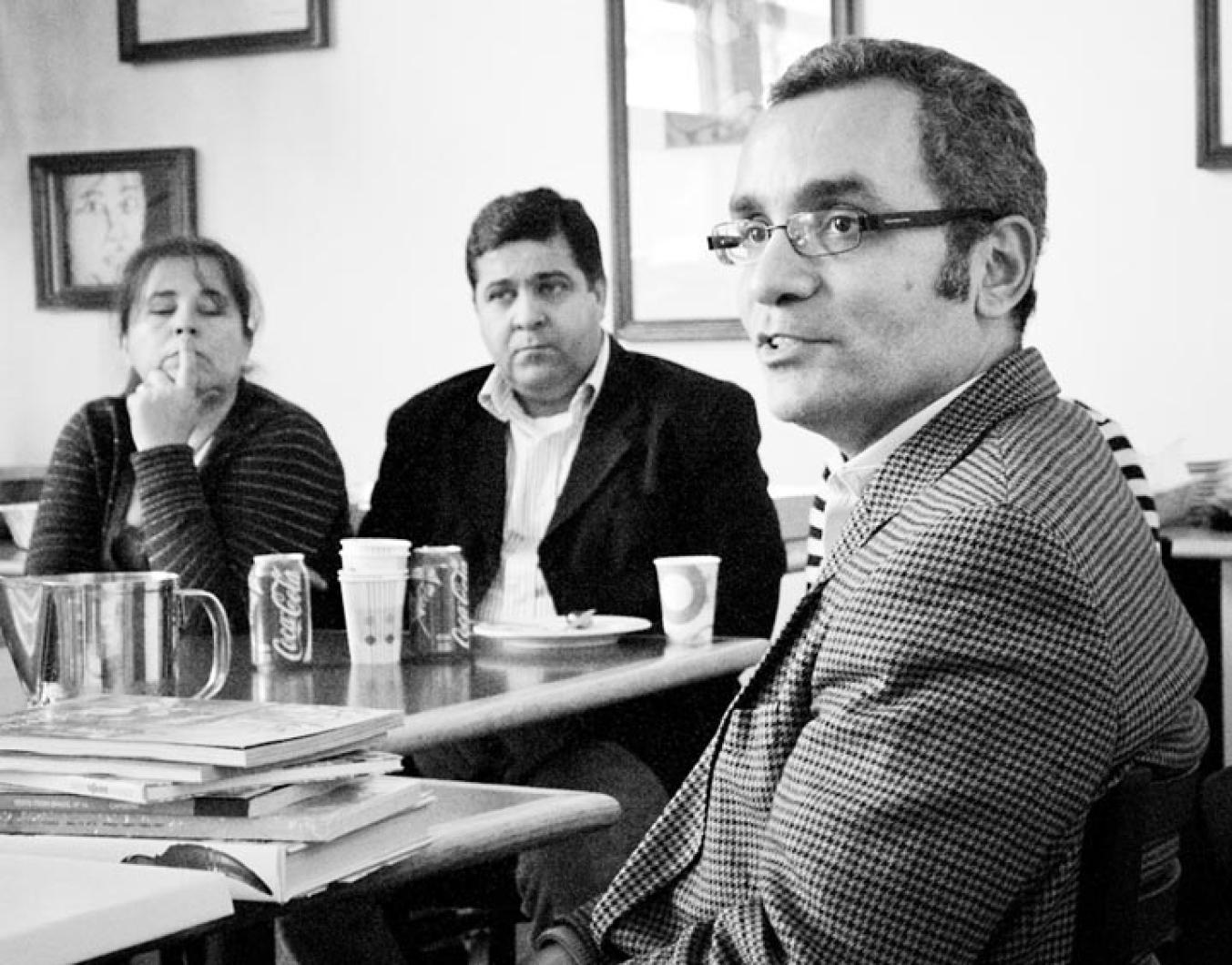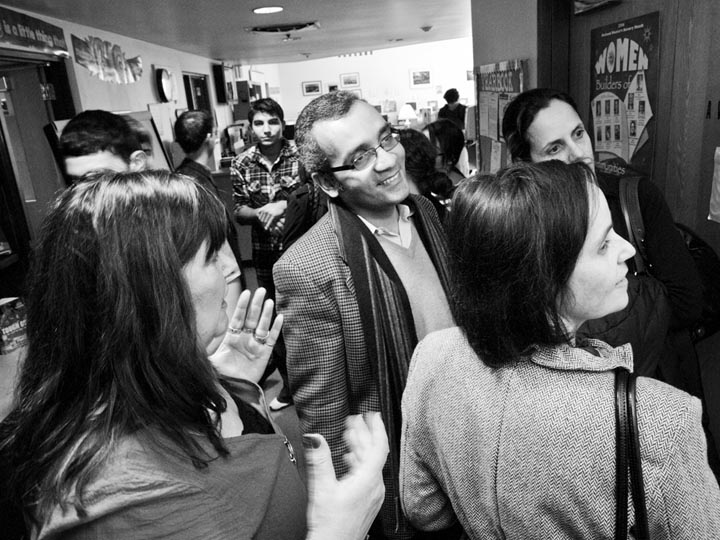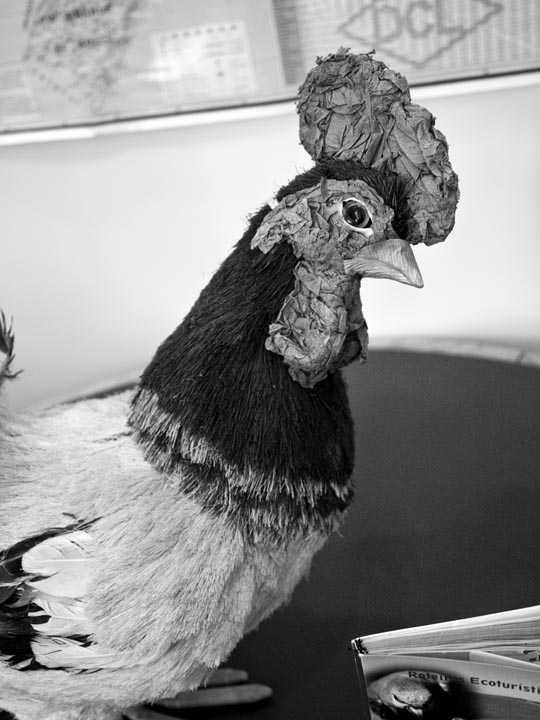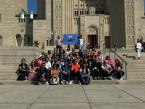Can you guess the two biggest countries in the Western Hemisphere that were born around the same time, colonized by Europeans, share a history of slavery and indigenous people, and are both democracies? Here’s a hint: the largest community abroad of one of these countries lives here in New England.
Brazil and the United States may have more in common than you thought.
Brazilian Deputy Consul-General Fernando Luis Lemos Igreja paid a visit to the Vineyard this week to address students in the Brazilian history class at the Martha’s Vineyard Regional High School. Over a traditional Brazilian lunch in the culinary arts dining room at the high school, the consul spoke about the similarities and differences between Brazil and the United States, and encouraged students to be ambassadors of both their cultures.
“You have the opportunity to . . . build this type of [cultural] bridge in your future lives in being Brazilian and American, speaking Portuguese and English,” Mr. Igreja said. “You have a big treasure with the experience you are having here and those you have brought from Brazil.”
The visit from the Brazilian consul came about because of high school history department chairman Dr. Elaine Cawley Weintraub, who designed a course in Brazilian history this year, the first course of its kind in Massachusetts. Since September Mrs. Weintraub has been teaching 31 students, all Brazilian, about the history of their country.
Last week Mrs. Weintraub traveled to Harvard University in Cambridge at the invitation of the college to speak about her experience with the Brazilian history class. Just prior to that she was contacted by Mr. Igreja, who said he wanted to come to the Island and meet the students.
The result was the Tuesday luncheon at the high school. Mr. Igreja, his wife Rebecca Igreja, and Harvard professor Dr. ClémencePastré spoke with students about their time on the Island and watched a class video about their experience integrating into American life.
Students spoke about the hardships they faced, including having a horrible first impression of the country and missing their food at home. But many also said they now feel more American than ever before.
“We serve 350,000 Brazilians who live in New England,” Mr. Igreja said. “As a consulate, we’re looking right now at as many ways to support the Brazilian community here and not only in the sense of what the consulate can do . . . but to make some kind of cultural approach and support for some communities and groups such as yours who bring Brazil to their communities.”
He said he was keen to support more student class initiatives, such as hosting an American-Brazilian lunch, to further the cultural embrace.
“One thing that is very important is that this initiative must have a future, it must continue for the next years,” Mr. Igreja said. “For those of you who are juniors, sophomores or freshmen, that’s a big responsibility on your shoulders to keep this project going on and keep this project in the school.”
Various members of the community were also present at the lunch, including Elio Silva, a noted Brazilian businessman on the Vineyard. Notably absent was regional high school principal Stephen Nixon. Mr. Nixon was embroiled in controversy last June when he denied a request from a small group of Brazilian graduating seniors to wear scarves in their country’s colors with their graduation gowns; the ruling was later overturned by the school committee.
“Can you talk about the voting process?” Mr. Silva asked the consul. “It’d be great to see you guys casting a vote, not only in Brazil but here as well. You don’t have to vote here but in Brazil you do . . . I’m going to be talking about it more and more because that’s one thing people need to do is to vote and to care about voting and to really know, take that blessing you have to chose our president,” he added.
“To vote in Brazil is not only a right all citizens have but also a duty, you cannot have a Brazilian passport if you don’t vote,” Mr. Igreja said, noting that Brazilians who do not vote must pay a penalty fee.
Ranked one step below an ambassador, Mr. Igreja has lived across the world and is fluent in French, Spanish and English.
“There are very good moments, but there are also some hard moments,” he told the students. “Like when we were in Nigeria we had some problems with terrorism acts near to our house.”
“But the most fascinating is to represent Brazil in all the world, to talk about Brazil,” he added.
Dr. Pastre encouraged the students to embrace two nations in their unique lives. “I think you all are ambassadors of Brazil here in the states, and in Brazil you are ambassadors of the United States and I encourage you to cherish both languages and both cultures, and to keep striving to keep Portuguese alive,” he said. “Treasure our language and our culture.”
When asked what issues Brazilians may face here compared to other communities in New England, Mr. Iregja said the Vineyard community may be more united due to the fact that it is an Island, but he suggested a Brazilian association may help encourage people to come together to discuss their problems.
After the talk, the consul was enthusiastic. “It was fantastic, I have learned a lot about this project,” he said. “It’s great what those kids have done. It’s very important to the Brazilian community to know what they can do.”
The class then showed their guests a mural they painted in the library entrance way, which depicts a map of Brazil and is signed by the class.
“We’re very proud of it,” Mrs. Weintraub said. “Before this class happened, there was no evidence of Brazilian presence at the school and now there is.”










Comments
Comment policy »